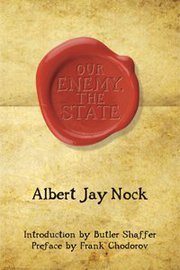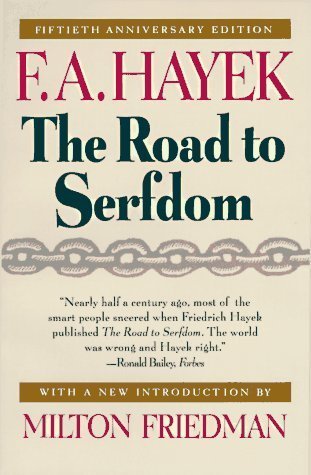
Our Enemy the State
Book Description
What if the very institution designed to protect you is the one suffocating your freedom? In "Our Enemy the State," Albert Jay Nock unleashes a fiery critique of government authority, exploring how it systematically undermines individual liberty and personal responsibility. With clarity and conviction, he dismantles the myths surrounding the state, exposing the stark truth: power corrupts and freedom thrives in its absence. As the oppressive weight of bureaucracy looms over society, the question lingers—can true liberty ever exist in a world dominated by institutional control?
Quick Book Summary
In "Our Enemy the State," Albert Jay Nock delivers a scathing yet insightful critique of government power and its corrosive impact on individual liberty. He argues that while the state is commonly perceived as a protective institution, its fundamental nature is predatory, constantly taking from the productive members of society to benefit a privileged class. Nock explores the historical evolution of the state, demonstrating that its expansion is always at the expense of personal freedom and economic independence. He calls attention to the dangers of bureaucracy, institutionalized privilege, and centralized control, all of which erode self-reliance and personal responsibility. Ultimately, Nock challenges readers to question the legitimacy and necessity of state power, advocating for a social order rooted in voluntary cooperation and individual sovereignty.
Summary of Key Ideas
Table of Contents
The Predatory Nature of the State
Albert Jay Nock opens his treatise by drawing a critical distinction between "government" and "the state." He posits that while government—voluntary, limited, and based on agreed-upon rules—can exist to facilitate social order, the state is by its nature an apparatus of coercion. The state, as Nock defines it, is always an institution that preys on its own citizens, enriching a privileged class by appropriating resources created by the productive segments of society. This predatory relationship, he asserts, is foundational and unchangeable regardless of the state's outward forms.
The Erosion of Individual Liberty
Nock traces the historical rise of state power, contending that every expansion of state authority corresponds with a decline in individual liberty. He provides examples from ancient and modern societies to show that as states grow, they invariably absorb functions previously managed by individuals, families, or voluntary associations. Nock argues this process corrodes self-reliance, as the population gradually places faith in political solutions instead of personal or communal initiative, thus deepening dependency on the very institution that restricts freedom.
The Rise of Bureaucracy and Privilege
A significant portion of Nock's analysis addresses the role of bureaucracy and institutional privilege. He describes how modern states create vast bureaucratic machinery, ostensibly for public good, but in practice serving to consolidate and perpetuate the power of an elite ruling class. Through taxation, regulation, and the legal system, the state systematically extracts wealth from the many to distribute it to the few. Nock warns that this not only fosters inequality but undermines the moral fabric of society by rewarding manipulation and penalizing productive work.
Voluntary Cooperation versus Compulsory Authority
In direct opposition to the coercion inherent in the state, Nock advocates for a model of voluntary cooperation and mutual respect. He invokes historical and philosophical examples of societies organized on principles of voluntary association, where law and order arise organically from the interactions of free individuals. In such arrangements, individuals bear the responsibilities and reap the rewards of their actions, nurturing a culture of self-determination and civic virtue that compulsory authority can never generate.
Historical Evolution and Consequences of State Expansion
The book’s final thrust is an admonition: as long as the state continues expanding, true liberty will remain elusive, and the cycle of privilege and oppression will persist. Nock urges readers to scrutinize the motives and mechanisms of state power, to resist the allure of state-provided security, and to reclaim agency and responsibility for themselves. "Our Enemy the State" thus stands as both a warning against the creeping encroachment of state authority and a rallying cry for a society based on genuine freedom.
Download This Summary
Get a free PDF of this summary instantly — no email required.





